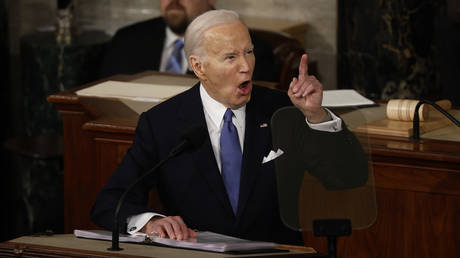ARTICLE AD BOX
IN January 2024, a NATO military chief warned that civilians need to prepare for an all-out war with Russia.
Following Admiral Rob Bauer’s claim, the UK Government warned of a one in four chance that Putin could launch an attack on a British ally within the next two years.
 Getty
GettyCould the UK go to war with Russia?
As the globe faces its “most dangerous and volatile moment” in history, fears of a WW3 are mounting.
It comes following concerns that Russia’s invasion of Ukraine could trigger a wider conflict.
On January 19, 2024, Admiral Rob Bauer warned that Brits need to be ready for a conflict that will change their lives.
During a crunch summit between Nato defence chiefs in Brussels, Bauer said: “We need to be readier across the whole spectrum.
“You have to have a system in place to find more people if it comes to war, whether it does or not.
“Then you talk mobilisation, reservists or conscription. We have to realise it’s not a given that we are in peace.
“And that’s why we [Nato forces] are preparing for a conflict with Russia.”
Following this, in an official risk forecast, ministers revealed that the UK would be forced to trigger a military response to any new acts of aggression from the Kremlin.
The stats came after British General Sir Patrick Sanders stressed the need to “mobilise the nation” – sparking WW3 fears.
Experts in the Cabinet Office have drawn up a National Risk Register to assess the biggest threats to the UK in the next two years.
It calculated that the likelihood of Russia attacking a non-Nato ally was higher than 25 percent.
The risk register also warned of a Russian attack on a Nato ally, which would trigger the alliance’s defence clause.
Article 5 – also known as collective defence – commits members of the treaty organisation to protect each other.
According to the treaty clause on the defence alliance’s website, Article 5 states: ”The Parties agree that an armed attack against one or more of them in Europe or North America shall be considered an attack against them all.
”And consequently they agree that, if such an armed attack occurs, each of them, in exercise of the right of individual or collective self-defence recognized by Article 51 of the Charter of the United Nations, will assist the Party or Parties so attacked by taking forthwith, individually and in concert with the other Parties, such action as it deems necessary, including the use of armed force, to restore and maintain the security of the North Atlantic area.”
”Any such armed attack and all measures taken as a result thereof shall immediately be reported to the Security Council. Such measures shall be terminated when the Security Council has taken the measures necessary to restore and maintain international peace and security, ” the Article adds.
British troops would support European allies on the ground as the US military would also join forces.
Is the UK in a pre-war era?
In January 2024, Defence Secretary Grant Shapps warned that the world is now in a ”pre-war” era.
In a speech at Lancaster House in London, he insisted: ”The era of the peace dividend is over.”
He added: ”In five years time we could be looking at multiple theatres involving Russia, China, Iran and North Korea.”
Who could be exempt from conscription UK?
As it stands, there is no conscription legislation in the UK – therefore, it is unlikely you will be called up for service under current legislation.
While forced conscription is not currently in effect in the UK, Parliament has the authority to enact a law reinstating it in the event of a national crisis.
The introduction of conscription were it to happen, would be the first time in over 60 years that civilians would be required to fight.
The UK implemented conscription during two periods – World War I and World War II.
The system required all men to register within 30 days of their 18th birthday and listed all those who would be potentially subject to the draft.
However, there were some exceptions.
Those who were police officers, medical personnel, prison workers, students, government employees, and ministers of any religion were exempt.
Those who also had certain physical or mental disorders, such as blindness, were made exempt from conscription.
Neurological conditions, severe skin conditions, psychiatric and cardiovascular issues could also prevent you from being drafted.
Those with bone or joint problems, such as chronic knee injuries, shoulder problems and a history of bone fractures, could also be made exempt.
.png)
 9 months ago
5
9 months ago
5








 English (US)
English (US)